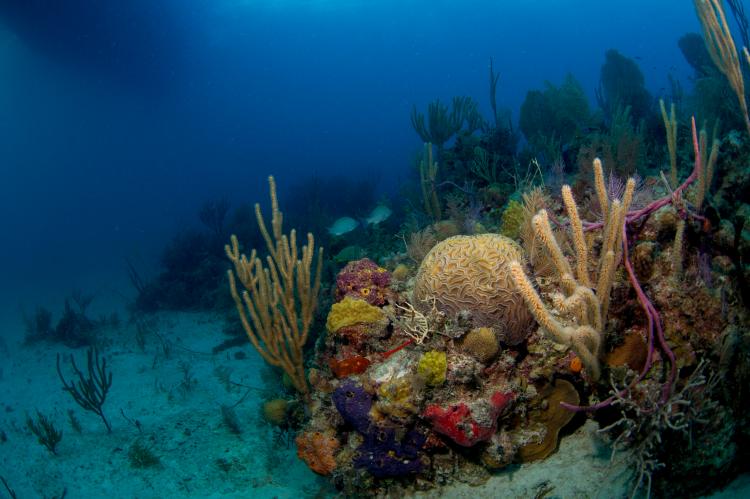Temperature is most influential factor on coral growth
Warming worse than acidification. Observations of coral reefs in Bermuda find that gradual ocean warming may increase growth rates, but only if below a temperature ‘tipping point’.
Many laboratory experiments have demonstrated that increased ocean acidity slows down coral calcification, the process by which corals grow and build their hard structure. But far fewer studies have tested how increasing ocean acidity affects coral growth in the natural environment, where a multitude of additional factors such as light, temperature, and nutrients are also important.
To answer this question, researchers at Scripps Institution of Oceanography at the University of California San Diego collected environmental data including temperature, light, and pH from two coral reefs in Bermuda over a period of two years and simultaneously measured the calcification and growth rates of coral samples placed on each of the reefs, as well as seawater chemistry.
The scientists found that in Bermuda, coral calcification was relatively insensitive to changes in the seawater pH, but very sensitive to changes in temperature. And the observed relationship between temperature and calcification was a positive one—as the seawater got warmer, coral growth sped up.
The biggest result (...) is that temperature is the only environmental driver that has significant results for calcification by both coral species at both reef sites and for reef-scale calcification.
The positive effect of modest warming on coral calcification had been observed in many laboratory experiments. But comes with a caveat: if the warming is too much or too fast, corals quickly reach a tipping point and bleaching happens. When bleaching stress is severe enough for long enough, the coral dies.
“This doesn't mean that the corals are not negatively affected by pH,” said Scripps chemical oceanographer Andreas Andersson. “It just means that the positive effect of the warming may mask any negative effects from pH when you're within the natural variability of temperature.”
Andersson said there are some places in the world where it is likely already too late, the water is too warm, and many corals can’t be saved. The planet has already lost fifty percent of its coral reefs compared to pre-industrial times, not only from over-heating but also pollution, over-fishing, disease, and coastal development. But Andersson said it’s not too late to save the remaining fifty percent.


